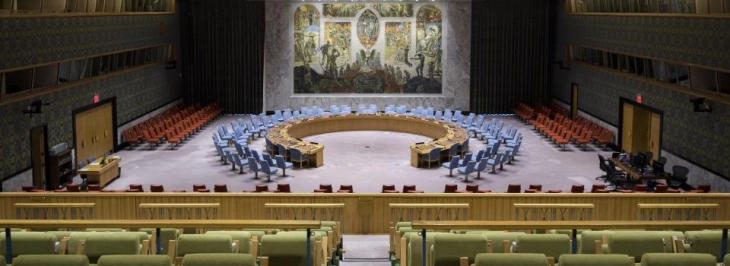US vetoes UN resolution calling for Gaza ceasefire
- A draft resolution calling for an immediate ceasefire in the Gaza Strip failed in the UN Security Council on Tuesday after the US again vetoed the text tabled by Council member Algeria.

New York, 20 February 2024 (dpa/MIA) - A draft resolution calling for an immediate ceasefire in the Gaza Strip failed in the UN Security Council on Tuesday after the US again vetoed the text tabled by Council member Algeria.
Given concerns about a possible major Israeli offensive on the crowded city of Rafah in southern Gaza, the proposal was widely supported by 13 of the 15 council members. Britain abstained.
US Ambassador Linda Thomas-Greenfield had declared ahead of time that the US would once again use its veto power in the Security Council should a vote be held.
The five permanent members of the most powerful UN body, the US, China, Russia, France and Britain, all have the power to do so.
The US said it wanted to prevent a vote in order not to jeopardize important negotiations between Israel and the Palestinian extremist organization Hamas, which along with other Islamist groups attacked Israel on October 7 and killed over 1,200 people.
"We believe that the resolution on the table right now would, in fact, negatively impact those negotiations. Instead, it could extend the fighting between Hamas and Israel," Thomas-Greenfield said before the vote in reference to talks mainly about freeing hostages.
"Sometimes hard diplomacy takes more time than any of us might like. Believe me, I understand the desire for the Council to act urgently to positively shape the situation in line with the Security Council's mandate."
The veto was seen by observers as a complicated ploy by Washington as it does not want to be seen as an enabler of the Jewish state's war tactics, which have increasingly come in for international criticism amid Hamas estimates that 29,195 Palestinians have been killed during the Israeli military campaign in Gaza so far.
In recent months, the US has already used three vetoes to protect Israel from Security Council resolutions.
According to a high-ranking Security Council representative, the negotiations this time on the veto became much more emotional behind closed doors.
The US would have to "take responsibility for everything that happens afterwards," added the official, who asked to remain anonymous.
"If Rafah happens, there is no going back."
Photo: MIA archive







